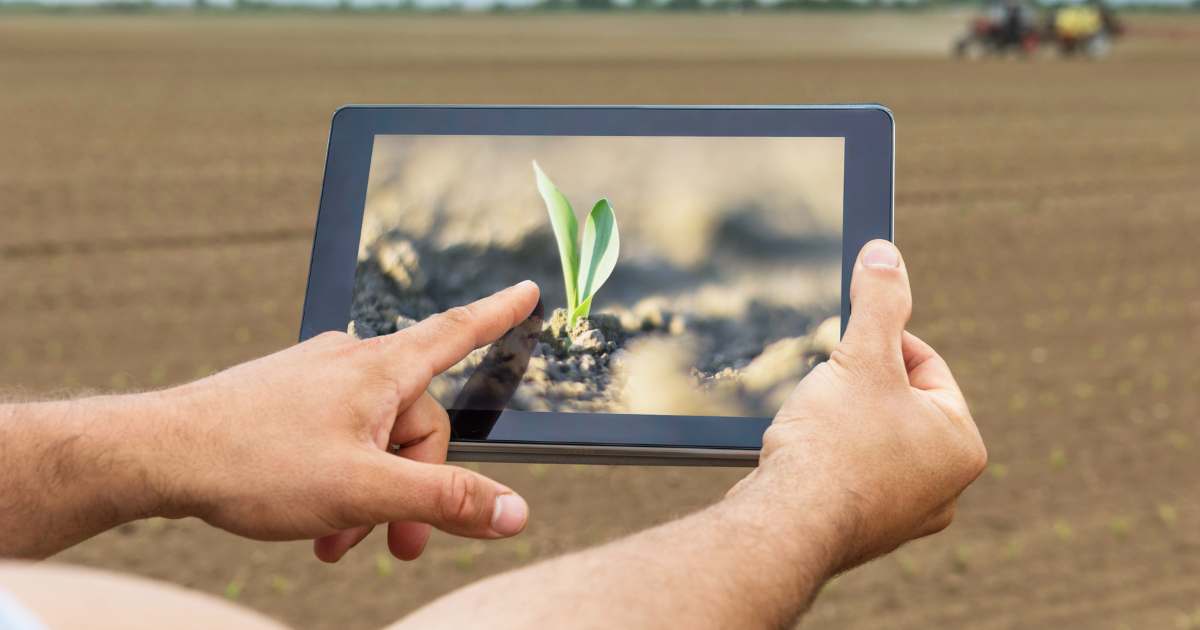
The constant demand for digitisation has played a huge role in the need for smart risk management solutions. In agriculture, there are many risks you’ll face. This can include disruption in the supply chain process, crop damage due to pests, and weather disruptions.
Integrating technological solutions to mitigate risk, as well as optimise cost-control strategies, is a necessity. In this article, we’ll discuss how to approach smart risk management in agriculture.
Technology in Smart Risk Management
Smart farming for South African agripreneurs can be implemented progressively through tools that are designed for farming solutions. There are tools and methods farmers can integrate into their operations strategy to help mitigate risk. These technological methods include the following:
ICT Tools for Farming
The benefits of using ICT tools in farming include how they can help you prepare for unforeseen circumstances. Smartphones and weather-predicting apps offer real-time data that can help prepare for different weather conditions, potentially preventing you from wasting money and crop production.
These tools can assist with optimised irrigation schedules, pest monitoring, and soil analysis, leading to more efficient resource management and improved yields.
Agricultural Insurance
Agricultural insurance, also known as agri insurance, helps you protect your business as a farmer. Whether you’re in poultry, fresh produce, dairy farming, wine farming, or another specific farming industry.
Benefits of Agricultural Insurance
There are a range of benefits to having agricultural insurance apart from the fact that it gives farmers stability. These benefits include:
- It provides peace of mind in a sector with many risks.
- It helps farmers recover after natural disasters or market changes.
- It keeps operations running even after losses and protects a farmer’s income and assets.
- It allows better financial planning.
- Digital systems make claims simple and clear. Farmers can file claims on mobile apps. They can also track progress and get payouts faster.
- Insurance also gives access to expert advice. Brokers and agri-insurance specialists explain which risks affect a farm.
- Farmers get cover that fits their needs, not generic policies.
Precision Farming and Data Analytics
Precision farming is one of the biggest benefits of digitisation. It uses drones, sensors and satellite imagery to help farmers monitor every part of their land.
Drones can capture images that show signs of pests or plant diseases early. Sensors in the soil can measure moisture and nutrient levels. So farmers can apply fertiliser and water where it’s needed.
These methods save costs and reduce environmental impact. And increase productivity.
Data analytics helps farmers make better long-term decisions. They can use historical data to study rainfall patterns, soil conditions and market changes. So they can predict yields and plan for next season.
In South Africa, more commercial farmers are adopting precision agriculture. With better access to digital tools, smallholder farmers could soon follow.
Early Warning Systems and Climate-Smart Solutions
Climate change is among the most significant obstacles that agriculture has to face at present. The occurrences of drought, flood, and heatwave have increased. However, the early warning systems are proving to be effective in helping farmers to minimise losses caused by these calamities.
The data of these systems comes from both satellite and sensor sources. The data is then analysed by artificial intelligence. The AI can not only forecast weather occurrences but also make timely alerts to farmers.
Farmers, with the help of these warnings, can take measures such as protecting animals, postponing seeding, or even purchasing grain in advance of a drought. All these activities mean that they are ready and also, will not suffer much, if at all, from the drought.
Climate-smart agriculture also invites the use of environmentally friendly methods. The solar-powered irrigation system is a great example; it not only reduces the energy cost and the use of fuel but also increases the farm productivity and helps the farm cope with extreme weather conditions.
Supply Chain Traceability and Risk Control
The digitisation of the agricultural supply chain is one of the main benefits that this technology has brought to agriculture. Blockchain and tracking tools provide transparency regarding the origin and transfer of products from the farm to the market. Therefore, such consumer trust is created among farmers, suppliers, and consumers.
In case of any delay or decay, the digital trace will show the exact place of the incident. Consequently, farmers and suppliers would then be able to act swiftly and prevent the recurrence of the same issue.
On the other hand, this traceability has brought about the issue of consumer confidence being positively won by tracing. The consumers are made aware of the product source, process, and
the like.






